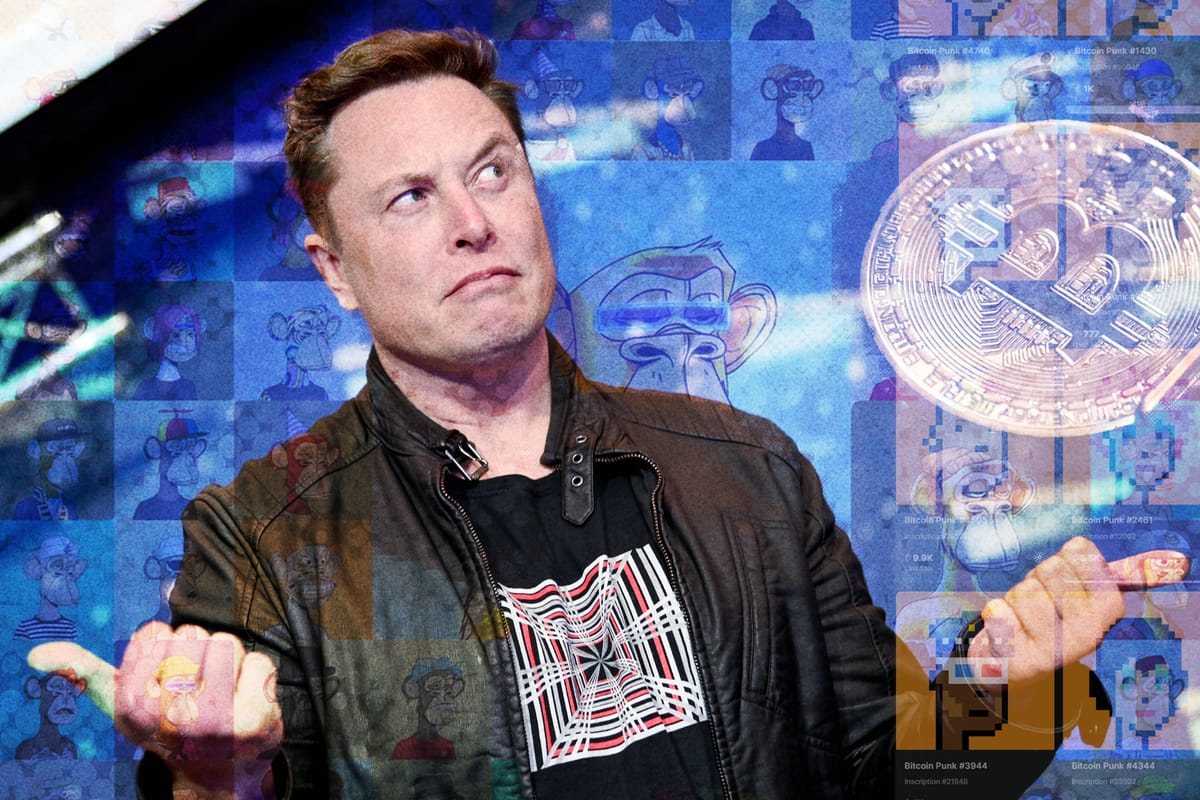
In a twist of irony that has caught the crypto community's attention, Elon Musk's recent critique of non-fungible tokens (NFTs) has inadvertently underscored the value proposition of Bitcoin Ordinals, Bitcoin's take on NFTs. During an episode of "The Joe Rogan Experience" podcast released on October 31, Musk took a swing at NFTs, igniting discussions across social media.
"The funny thing is the NFT is not even on the blockchain — it's just a URL to the JPEG," Musk stated, pinpointing a vulnerability in the typical NFT framework where the token often links to an image or file hosted externally.
Musk advocated that “You should at least encode the JPEG in the blockchain,” to mitigate the risk of losing the asset should the hosting company fold. This comment sparked an immediate response from the Bitcoin community, with many interpreting Musk's words as an implicit endorsement of Bitcoin Ordinals. Ordinals inscribe data directly onto the Bitcoin blockchain, tying the artwork or media to a single satoshi, thereby ensuring its permanence as long as the Bitcoin network persists.
Against a 97% drop in trading volumes in August, Musk's critique of NFTs has inadvertently spurred a new surge of interest in Bitcoin's Ordinals. Prominent figures within the cryptocurrency space have echoed Musk's sentiments. Analyst Will Clemente highlighted the growing number of Ordinals inscriptions, and others, such as Rohun "Frank" Vora, creator of NFT projects DeGods and y00ts, have hailed Ordinals as an "elegant solution" to widespread concern about NFTs' longevity and reliability.
This support is not just lip service. Projects like DeGods and y00ts have already ventured into minting across multiple chains, including Bitcoin, advocating the superior security and decentralization of the Ordinals protocol. Moreover, even co-creator of Dogecoin, Billy Markus, expressed his preference for Ordinals in a tweet, reinforcing Musk's criticism.
.@elonmusk you just laid out the case for Bitcoin ordinals - image/text inscriptions directly on the most secure open source monetary network on the planet. There are currently 38 million of these inscriptions on the Bitcoin blockchain. pic.twitter.com/WASj1qpkz8
— Will Clemente (@WClementeIII) November 1, 2023
Musk raised a significant issue with NFTs: their reliance on external servers for storing the linked artwork, a critique that dates back to the early frenzy of high-value NFT sales like the Bored Ape and CryptoPunks collections. This vulnerability was starkly highlighted when the FTX crypto exchange went under, leading to many NFTs becoming inaccessible. However, Musk's generalization doesn't apply universally. On the Ethereum network, which hosts a large proportion of NFTs, some projects, including CryptoPunks and Moonbirds, do have their artwork fully stored on the blockchain. Similarly, Art Blocks has implemented on-chain storage for the algorithms of its art, ensuring the permanence and reproducibility of digital art pieces.
For-profit social impact NFT startup Metagood announced in September that it would transfer its OnChainMonkey NFT collection from Ethereum to Bitcoin, citing the Bitcoin Ordinal protocol's superior security and decentralization features. CEO Danny Yang expressed confidence that high-value NFTs would be more successful on Bitcoin. The firm's OnChainMonkey Ordinals project completed its biggest sale to date in mid-September at $100,000.
Ethereum currently still dominates the NFT market with an 84% share of all trading volumes, while Bitcoin and ImmutableX trail with 11% and 2.5%, respectively.

